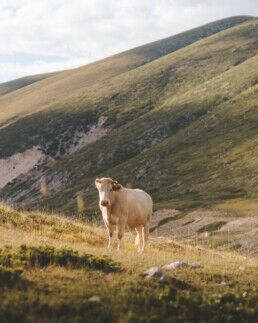“10 Drops” of Icelandic Wisdom: Some of our favorite Icelandic sayings
By Taylor van Biljon
Level up your Icelandic wisdom with some of these sayings and proverbs!
“10 Drops” of Icelandic Wisdom: Some of our favorite Icelandic sayings
By Taylor van Biljon
Level up your Icelandic wisdom with some of these sayings and proverbs!
Icelandic sayings, like all idiomatic and metaphorical language, are a reflection of the culture and the people that they belong to. Like a sort of touchstone throughout time, these sayings have been crafted from the experiences and known truths of the people that coined them- and though some of them may sound a bit mysterious to us now, their meanings reach back to us over the centuries- connecting us all once again through the story of shared existence.
A smá note before we head off on our journey:

Humans love stories. We love to imagine ridiculous things, to dream up bizarre visuals and juxtapose the real with the unreal. It has always been one of the ways that we connect and anchor ourselves to this world, while reaching out to fellow souls.
Many of these sayings are great examples of that innate drive to create above all things. Imagine the power of some of these in a time before television! A chance to make some humor in a dark time, or to veer closer to a shared understanding. Is it with you, as it is with me?
It is easy to see how these attempts to connect to other people would have been popular, as they continue to be even now.
It is also good to note- that language travels with people, and is often historically changed by those movements. Though the Icelandic language did insulate itself fairly well for many years, there is always a chance that a saying was borrowed or adapted from another culture, or another meaning that has since changed over time. Iceland was settled by some of the most intrepid voyagers in this hemisphere, and despite being an island, visitors and returning residents continued to bring the treasures of their culture on their treacherous journeys.
We know the origin of some of these sayings, and some of them we can guess. But others are so ingrained in the colloquial speech of the day that they are just like ancient trees in the heath. We came here long after them- and we can only guess at the things they have seen.
It is that way with many of these- so if you have a scrap of knowledge to add, let us know! Despite their firm standing in the cultural lexicon of a place, it is also possible that interpretations of a proverbial meaning may vary. Half of the fun of these riddles of speech is in the discovery.
PLAN YOUR JOURNEY
Travelling to Iceland?
Check our overnight tours with a driver guide that includes a one night stay in a bubble.*Starting from ISK 74.900 per person
Saying: “að brynna músum”

Literal meaning: “to water the mice”
Intended meaning: to cry
We open our journey through some of our favorite Icelandic sayings with this one, a tiny yet colorful quip about crying. (Something that probably happened more often than not, back when the ownership of a single candle signified great wealth.)
Upon hearing this, it is hard not to be a bit charmed- but also to imagine the great scale at play. The picture of a giant human tear dropping down on a tiny mouse. So many cartoons come to mind! Some things never change, and I imagine that includes the need to inject a little humor into a sad situation, or, perhaps to poke some fun. So when you see somebody having a good cry, now you finally have something to say about it! (Or maybe not.)
Saying: “gera hreint fyrir sínum dyrum”

Literal meaning: “to clean one’s door” or “to clean the step to one’s door”
Intended meaning: to clean up your act or explain yourself
If you look for it, you’ll actually find this saying in regular circulation in the news. Typically it comes around when someone is behaving badly, and not owning up to it. You may know someone like that, yourself!
So feel free to reserve the use of this shameful rebuke on the next badly behaved entity that you find yourself interacting with; and let them know- go clean your door! There’s nothing like having the dirtiest door in the village to make you stop and reconsider your life path.
Saying: “Þar stóð hnífurinn í kúnni.”

Literal meaning: “there stands the knife in the cow” or “now the knife’s stuck in the cow”
Intended meaning: Now you’ve done it.
You will also find this little gem in the Icelandic news. A fitting sentiment for discussing the popular news of the day, this one certainly paints a picture. Imagine the context of this- “well, now you’ve really stuck a knife in the cow.” Denoting a discernible problem, this saying really makes you wonder.
In the long timeline of an agrarian society, were many knives lost in cows? Was it a regular occurrence to accidentally find one there? Maybe you were having a conversation with a neighbor, gesticulating wildly while searching for a vibrant enough phrase to describe a situation you found yourself in, and, well! The knife you were holding has been pulled by the cruel claw of gravity and physics, and is now sheathed in a nearby cow.
What a day. You needed this cow to last the winter. You do certainly have a problem, now. So does the cow. At least there will be steaks.
(21st Century tip: For us the working version of this problem proclamation would be: “Well now you’ve really stuck a knife in the Bubble.” Because that would indeed be somewhat of a problem for us.)
Saying: “rúsínan í pylsuendanum”

Literal meaning: “the raisin in the sausage end” or “the raisin in the end of the Icelandic hot dog”
Intended meaning: this phrase is used to describe a good surprise, or an excellent thing
Showing the mirror quality of sayings throughout cultures- this is a saying you may feel familiar with! Similar to the “cherry on top” or “it’s gravy/frosting” type sentiments, this is a way to describe an excellent thing. (While not delving too deeply into the various meanings of the gravy sayings, we understand that gravy can be a contentious and hallowed thing.)
Calling upon the imagery of finding a tasty treat inside a larger dish- (something that most culinary cultures experience in one way or another), this saying does come with its bit of puzzlement. Because.. A raisin? A raisin in a hot dog?
Our ancestors are all likely standing around scoffing at our spoiled palates, because if you can believe it, this was once a real treat. You’ve been eating this sausage, which let’s be very honest here- is probably already a treat- and behold! Just before you finished it, you discovered a rare raisin. An oasis of sweetness in what we must assume was a desert of a sausage. Euphoria follows, as one must expect.
..And while you are distracted by the divine excitement of the secret raisin, may we just sneak in the fact that this saying is believed to have been co-opted from the Danes, which.. Well we are going to need another raisin, is all we’re saying.
Saying: “Sjaldan er ein báran stök.”

Literal meaning: “Rarely is one wave single.” or “There is seldom a singular wave.”
Intended meaning: Good or back luck is often followed by more of the same
Interestingly enough, this is a sentiment that is known world over. Similar to the saying “bad things come in threes” or “when it rains, it pours”, there is a feeling in many cultures that extreme occurrences come with an entourage.
Recorded in Arngrímur Sigurðsson’s idiom compendium and translation dictionary, Íslenzk-ensk orðabók is one of the most reputable places that we can see this phrase recorded in published text. It is easy to imagine that this is a local saying, but as with many of these phrases- it is hard to know the true origin for certain.
Iceland has always been very focused on maritime trade and activity, and the ocean is an omnipresent visual here. Many things can be leveraged and compared this way- from the behavior of waves and currents, to the cruel realities of the power of the sea and the human life.
So much here is given by the ocean, but so much has also been taken away. It is a sobering reminder, that all coastal living folk do well to remember.
Saying: “að mála skrattann á vegginn”

Literal meaning: “to paint the devil on the wall”
Intended meaning: to exaggerate
Another favorite of the news, is this act of exaggerating during a clash of minds. Who hasn’t been ensnared in a hot disagreement, and then upped the stakes by adding some drama? Well, perhaps you, and many of your ancestors, that’s who.
Imagine the scene- you and some peers are trying to work through a situation, and then one of you flamboyantly interrupts the action by painting an actual depiction of the devil on the wall. What a move!
It is brassy to say the least, potentially annoying, and certainly a statement, which I think was your initial goal to begin with. This is a great saying, because it truly encapsulates the feeling that it is trying to touch upon.
When you make that decision to turn the heat up, you are painting the devil on the wall, my friend.
Saying: “að slá einhverjum gullhamra”

Literal meaning: “to hit somebody with a golden hammer”
Intended meaning: to compliment someone
A striking visual indeed, is hitting someone with a golden hammer. Bringing back memories of “hitting on someone”, “killing someone with kindness”, and countless others, is this golden description of complimenting someone. And it works, doesn’t it!
Receiving a compliment can be a tiny bit painful, despite the golden glow of it. Imagine the fleeting embarrassment of being told you’re cool, or attractive, or talented. Suddenly the wisdom of the hammer analogy is revealed.
Saying: “Ég skal sýna þér í tvo heimana!”

Literal meaning: “I shall show you the two worlds!”
Intended meaning: this is a threat
Ever told someone you were going to knock them into next week? Or that you brought them into this life, and could take them back out of it as well? Perhaps, “meet your maker” comes to mind?
There are so many good fightin’ words to choose from- but these are truly excellent. This saying originates from the belief that upon death, one transits between two worlds.
The realm of those of us who are alive, and the one for those of us who aren’t. There are other interpretations of this, including the belief that there are two specific afterlives. (Any of this sound familiar?)
There are some specifics here that we could debate all day, (including whose religion believes this- it does appear to span a few,) but the point you should be walking away with is that this is a really cool line. We’re not saying you should pick a fight in order to use it, but.. You have to admit it’s pretty incendiary.
Saying: “Gakktu hægt um gleðinnar dyr.”

Literal meaning: “Walk slowly through the doors of joy.”
Intended meaning: Don’t get too excited and hurt yourself.
It appears that “all things in moderation” rears its responsible head even here in Iceland. A popular genre of saying, older generations have been carefully repeating this one to younger generations since the dawn of time, and likely will not stop anytime soon. (I think each of us has had an experience at some point that will remind us why that is.)
This is an old phrase, and it’s so important that it even shows up in music! You can hear a song that includes it here.
A favorite explanation of this saying comes to us from author and journalist Alda Sigmundsdóttir. The way that she tells it does not feel too detached from today (especially after this past year and a half)- but it relies on the understanding that back then, there were less opportunities to gather and “cut loose”.
When these opportunities did come around, you can imagine how it went. Let’s dip into our imaginations and see if we can absorb the descriptive goodness from this treasure of a proverb.
Now, after drinking and making merry with the friends you haven’t seen in an age, perhaps you find yourself in a bit of a state. And perhaps, while enjoying the hospitality of the farm that you were all celebrating at, you attempted to leave the epicenter of music and dance to get a breath of fresh air and straighten yourself out or- you know, clean your own doorstep. Ahem.
But you were having too good of a time, you hit your head on the doorframe when you left, and you cracked it with your extreme enthusiasm and destroyed the exit.
So when you find yourself in the hopefully near future, enjoying a wild night out with some friends- take care to remember this wisdom of wisdoms, and pump the breaks a bit before you venture through any doors. In every way that one can imagine.
Saying: “tíu dropar”

Literal meaning: “ten drops”
Intended meaning: this is a type of amount exaggeration typically related to coffee, but not limited to coffee.
So you’ve made it all the way to the end, and you can see that the title finally ties into the article, and that all shall be revealed with great drama!
This is a popular fragment phrase that has lent its name to music, the name of a popular establishment in Reykjavik, and of course the daily lexicon of many Icelandic people. But what does it mean, these ten drops?
It is not an atypical practice in various cultures to go through a great fuss and prepare an impressive meal to provide hospitality to your visitor.
There are many reasons for this- the modern evolution of hostly manners, the relationship of resources to cultures that have known austerity, and the custom of knowing about this austerity, and therefore refusing the hospitality in order to avoid bringing more of it upon your host. Things like this change and imbed themselves in our interactions over time, but the memory of them is still with us.
You may have heard someone ask if you’d like a “spot of tea”, or “a bite to eat”. These are phrases that often accompany an offering, as it has been in recent times an acceptable thing to present these things humbly. Food and drink of course are vital resources, so it makes sense that we consider their value, even if things are going quite well.
This saying is a hallmark of Icelandic culture, and despite its minutia, it tells the story of a people who survived difficult days but celebrated togetherness despite them. It means ten drops, yes; but it means ten drops for a friend, no matter how many drops you have left, and that is a beautiful thing.

PLAN YOUR JOURNEY
Travelling to Iceland?
Check our overnight tours with a driver guide that includes a one night stay in a bubble.*Starting from ISK 74.900 per person